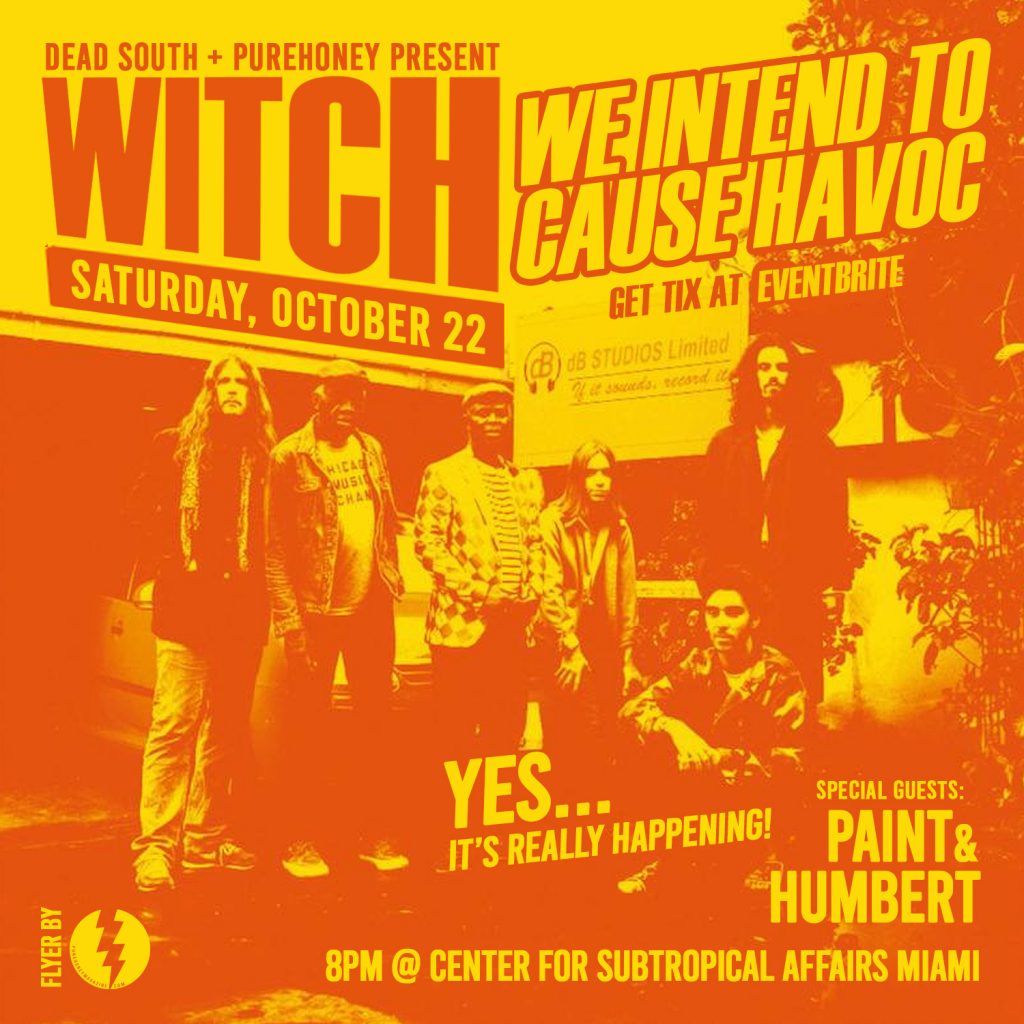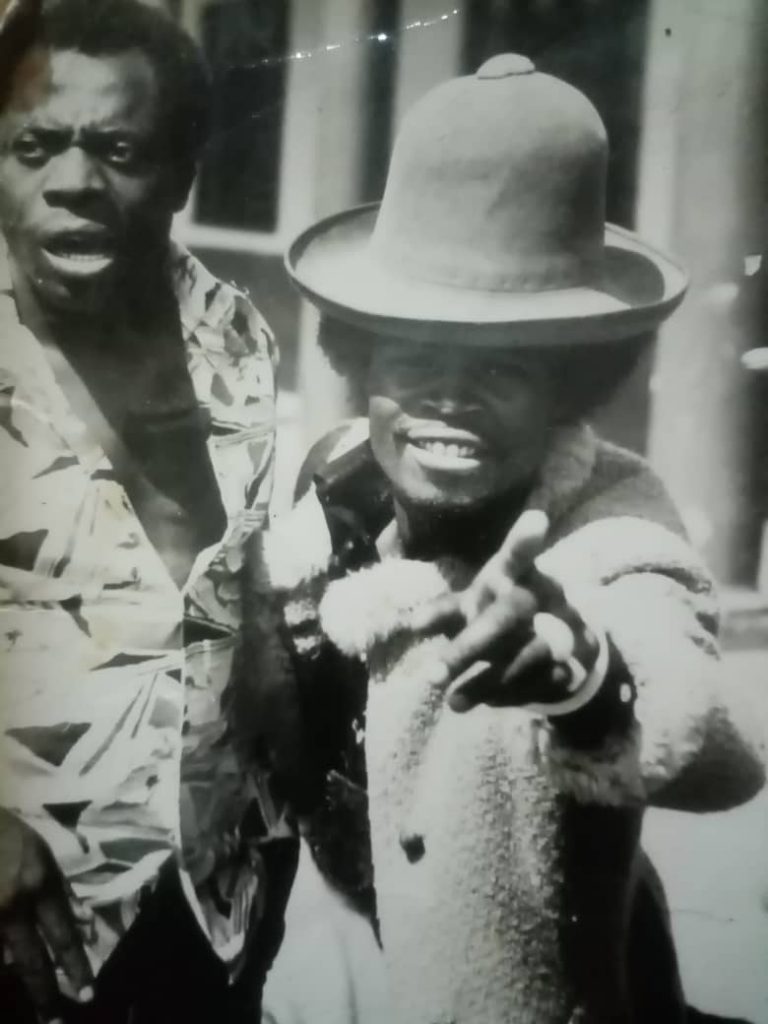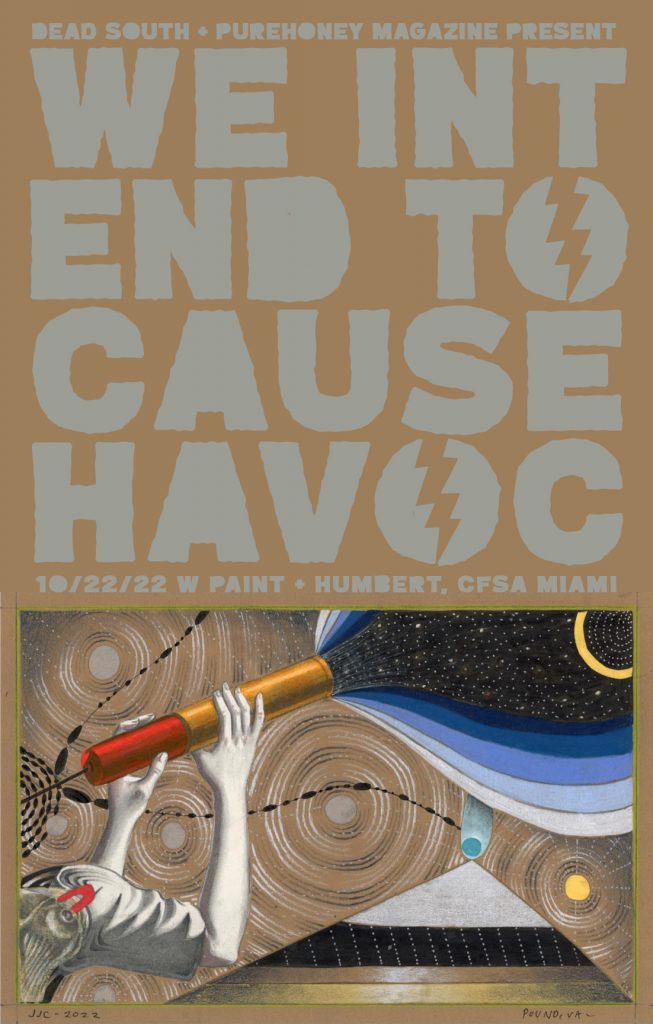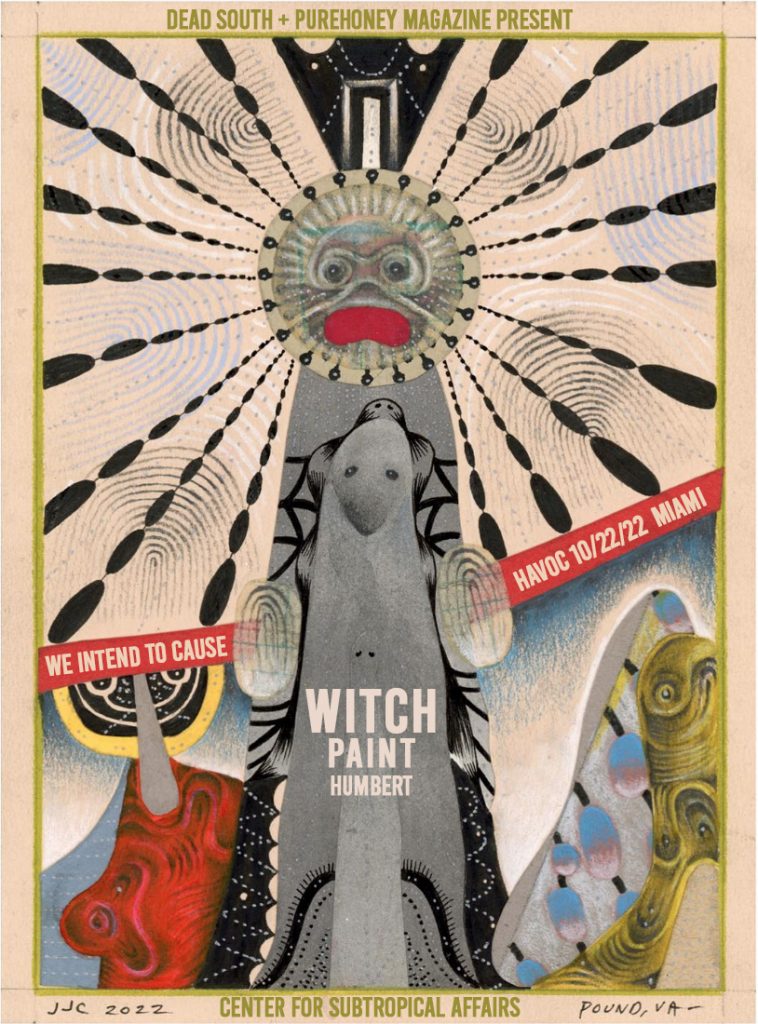We Intend to Cause Havoc, the band name chosen by frontman Emmanuel “Jagari” Chanda and his mates, was a claim to distinction in a highly competitive music scene in Zambia’s post-independence rush — and a statement of impact from these champions of Zamrock that still lands, but differently.
WITCH, as they’re known, became a sensation in Zambia and southeastern Africa in the 1970s and 1980s before their breakup and a long hibernation that is now very much over. WITCH are touring again and being celebrated in a documentary film, and the Zamrock movement has re-emerged in reissues and compilations such as 2017’s “Welcome to Zamrock” to capture new generations of music fans globally. “To my amazement, we have young people in their 20s and 30s who are now following this music,” WITCH’s Patrick Mwondela tells PureHoney in an interview. “It’s mind-blowing, really.”
Amid a flurry of interest in African music in the 2000s — reissues of Afro-beat avatar Fela Kuti, explorations by the likes of Awesome Tapes From Africa — Zamrock also resurfaced. “The way I heard about this resurgence is that a Zambian student in Canada wrote a thesis on Zamrock and it went viral, creating interest in our music scene,” says Mwondela. “So people started looking.”
WITCH came to the attention of a crate-digging, Connecticut-born rapper, Egon, who also runs a Los Angeles-based independent record label, Now-Again. A string of WITCH album reissues in the early 2010s followed and helped to set Chanda and Mwondela on a path toward reunion tours beginning in 2017 that both might regard as providential.
“We are both born-again believers, so our faith is very strong,” says Mwondela. “I’ve looked back and said to myself, ‘There I was back in the day, causing havoc in people’s lives and my own life as well,’ but I find this as an opportunity to play Zamrock and all the stuff we did, and to talk to people about life.”
Mineral- and music-rich Zambia gained independence from the United Kingdom in 1964. Zamrock, a term credited to Zambian radio DJ Manasseh Phiri, was a rallying burst of energy for dozens of post-colonial Zambian bands. A boon to the scene was the first president of the independent nation, Kenneth Kaunda, declaring that 95% of music on Zambian radio must be of Zambian origin.
Formed in the early ’70s, WITCH thrived in an era of both optimism and crisis: Zambia’s copper-powered economy was faltering, but bands such as Salty Dog, Amanaz, the Ngozi Family and Crossbones were everywhere. And WITCH led the pack. “In Zambia we were a household name, the shows were wild — the police had to be on alert,” says Mwondela. “We were true to the intention of causing havoc.”
WITCH also evolved, from rock to disco/funk and finally to kalindula — a roots genre named for a lute-like bass guitar — before disbanding in the face of a devastating AIDS epidemic that decimated the whole Zamrock scene.
A keyboardist and multi-instrumentalist, Mwondela joined WITCH ahead of 1980’s “Movin’ On” album and led the band after Chanda quit to become a teacher. Mwondela credits his musical range to the global character of his education in the 1960s at the outset of Zambian independence.
“Zambia was exporting copper at the time; the currency was one-to-one with the British Sterling Pound and the schools were excellent and international with a lot of expatriate Canadian, English, Kenyan,” he says. “I mean, the whole world was in Zambia.”
As young residents of a former U.K. colony, Mwondela and others were also listening to anything that was happening in London almost on the same day. “Motown, Deep Purple, Eric Clapton, Santana, those were the influences we had,” he says.
Mwondela cut his teeth with teen outfits on Zambian TV and with a youth band, Guys and Dolls, that managed to upstage the better-known Chanda and WITCH in a monthly televised concert with battle of the bands energy. “It was very competitive, and we stole the show with our blend of Zamrock and disco,” Mwondela says, “and since WITCH was looking for a keyboard player at the time, they sort of headhunted me and I made a deal with them that if they wanted me, they had to take my guitarist [Emmanuel Makulu] as well.”
They were operating in an environment of musical superation based on every band trying to best each other. Mwondela even claims acts of musical espionage by concertgoers who would report back to other bands on sounds, styles and antics. “Musicians of my era learned their instruments by studying the best players around and the level of musicianship was very high,” says Mwondela. “It was because of this competitive nature and a mindset that because we were in Africa not having access to many things, we were being left behind, so that what little we had, we really embraced it.”
WITCH’s first three albums, “Introduction,” “In the Past” and “Lazy Bones!!” are crucial rock ’n’ roll classics. And while the later disco influence might register with Westerners as a rift, the band’s original fans had grown up with musical diversity and didn’t live in a binary rock versus disco world.
Mwondela recalls when “Movin’ On” was leaked to a Zambian radio station. “WITCH fans that had been following the band from the ’70s were queuing up at records stores to buy the record,” he says, “but unfortunately it was months before they would actually be at the shops.” The supply chain notwithstanding, the fan embrace of the stylistic shift “gave us a sense of pride,” he says.
WITCH and their new sound found a residency in Lusaka’s Moon City nightclub in the early ‘80s, but as the AIDS epidemic ravaged the country and band members cycled out, Mwondela exited. “It was tragic. AIDS wiped out an entire generation,” he says. “Zambia struggled after the disco era. If you look at our next [1984] album, ‘Kuomboka,’ like many Zambian musicians, we were trying to find our roots and reestablish ourselves. At the time, Zambia had such a small population that it didn’t allow for musicians to make a living and promoters were not able to get things done.”
WITCH disbanded. Mwondela relocated to London, where he still lives. Chanda, in addition to teaching, has also worked as a diamond miner in Zambia’s old copper belt. They are the sole survivors of WITCH’s heyday and are touring bandleaders again with help from Italian journalist Gio Arlotta, who learned of WITCH through the Now-Again reissues. Arlotta directed the 2021 documentary, “We Intend to Cause Havoc,” focusing on Chanda’s life post-WITCH and the excitement around the band’s rediscovery. The Chanda-Mwondela reunion combines every era of WITCH music for today’s audiences.
When a concertgoer at one tour stop confided her faith to Mwondela and talked about a parent’s struggles with drug use, Mwondela realized that while WITCH could have gone down the path of ministry through gospel, he and Chanda are better poised to meet people where they are, as WITCH fans. “We might’ve intended to bring havoc in the beginning,” he says, “but now we are bringing harmony and peace into people’s lives.”
WITCH perform with Paint 8pm Saturday, Oct. 22 at the Center for Subtropical Affairs in Miami. facebook.com/weintendtocausehavocfilm ~Abel Folgar

















